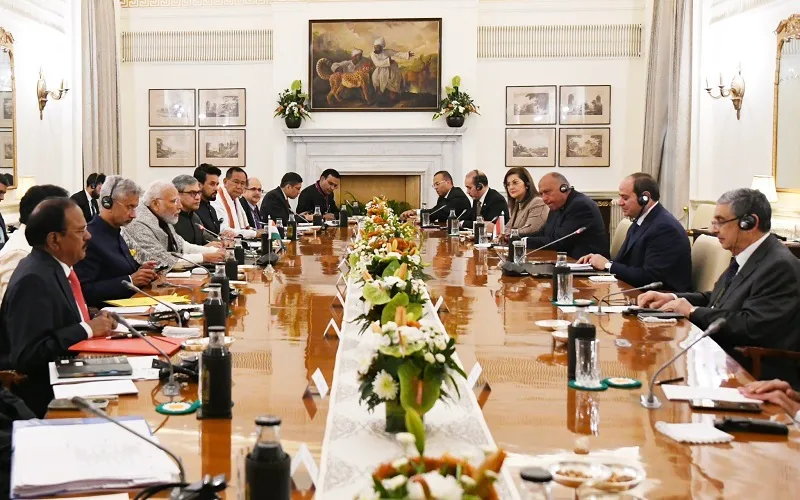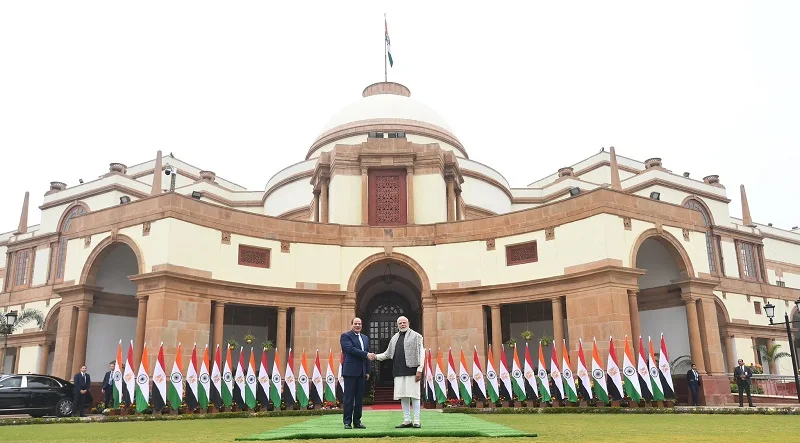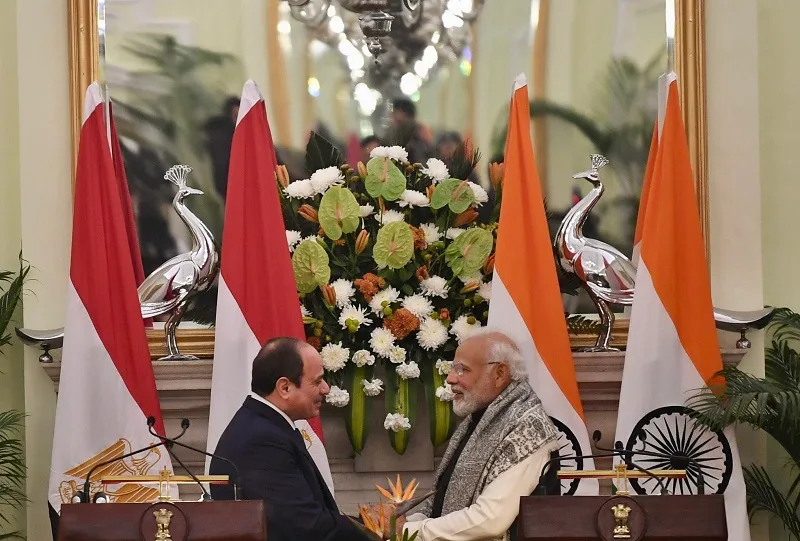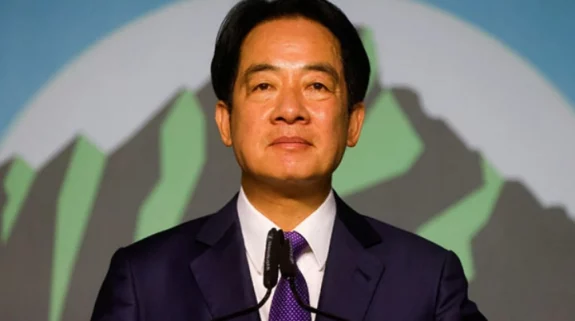Cooperation in the field of defence and counter-terrorism dominated the agenda of Egyptian President Abdel Fattah El-Sisi’s meeting with Prime Minister Narendra Modi as India and Egypt upgraded relations to the strategic level in New Delhi on Wednesday.
During the discussions, including a closed session of talks, both leaders spotlighted that while there has been a significant increase in joint exercise training and capacity building between both armies over the last few years, there is a need to further strengthen cooperation between the defence industries and enhance the exchange of information and intelligence related to counter-terrorism.
“At one side of the Arabian Sea is India and on the other side is Egypt. Strategic cooperation between the two countries will help in promoting peace and prosperity in the entire region,” said PM Modi after the meeting.
The elevation of the India-Egypt relationship to a Strategic Partnership will see the development of a long-term framework for greater cooperation in the political, security, economic and scientific fields.
Both India and Egypt, said PM Modi, are worried about the spread of terrorism around the world and agree that concerted action is necessary to end cross-border terrorism.
The two leaders also had an in-depth exchange, discussing the best ways to combat terrorism and confront extremist ideology, the spread of which presents a real threat to the entire world.
“Misuse of cyberspace to spread extremist ideologies and radicalization is a growing menace. We will extend cooperation against this also,” stressed PM Modi in talks with Sisi, the chief guest for Republic Day celebrations on Thursday.
The official spokesperson for the Egyptian Presidency pointed out that during the closed session of talks, PM Modi expressed great appreciation for President Sisi and his wise leadership that maintained security and stability in Egypt after the chaotic events in the region, including the violence during what was known as the Arab Spring.
“Strengthening cooperation in defence field is the best proof of the common will to inaugurate a strategic relationship between the two countries. We affirmed the continuation of coordination, joint training, exchange of experiences and work to explore additional horizons to deepen cooperation in that field, including co-manufacturing,” Sisi said during his speech at the Hyderabad House.

Ahead of the visit, there was considerable speculation about Egypt’s interest in India’s Tejas fighter jet.
Sisi also recalled his first meeting with Prime Minister Modi on the sidelines of the United Nations General Assembly in New York in 2015, saying he was convinced that India will experience “a boom in modernization and growth” under the PM’s leadership.
He expressed Egypt’s mutual interest in developing and advancing new partnerships with India in all fields, especially in light of the strength and distinction of the historical relations between countries.
A middle power, with a commanding presence in the Red Sea — the gateway to the Mediterranean Sea via the Suez Canal – Egypt also has an influential presence in the Horn of Africa, as well as North Africa, including resource-rich Libya, with which it shares a common border. It also enjoys excellent relations with the Gulf countries especially the United Arab Emirates and Saudi Arabia.
From an Indian perspective, Egypt can play a major role in its Indian Ocean Strategy, especially as 500,000 barrels of oil sourced from the United States, Latin America and Algeria passes through the Egypt-controlled Suez Canal.

India and Egypt have a similar approach to terrorism, especially with groups, including Al Shabab in Somalia and Boko Haram, which can impede the free flow of shipping through the Bab el Mandab — the gateway to the Red Sea.
As reported by IndiaNarrative.com earlier, Egypt is keen on increasing Indian investments, especially in the economic zone of the Suez Canal.
“Our visions agreed to maximize the existing cooperation in various fields and move towards partnerships in new fields, including cooperation in the field of new and renewable energy and the production of green hydrogen,” said Sisi.
Also Read: From military hardware to green hydrogen — India and Egypt rekindle old romance
The two countries also agreed to enhance strategic cooperation in several other fields, including food security, higher education, chemical, fertilizer, and pharmaceutical industries, information and communication technology, and cybersecurity.
After their meeting, the two leaders participated in the ceremonies for exchanging a number of Memorandums of Understanding and cooperation between the two countries in the fields of information technology, cybersecurity, youth and sports, broadcasting, and culture.
“As it is not hidden from you, Egypt and India share a civilizational dimension which is rooted in the depths of human history. Therefore, we have agreed on the need to strengthen ties and connections at the cultural level through mutual participation in cultural events in both countries,” said the Egyptian President.
As a first step, the two countries will intensify flights, especially between Cairo and New Delhi, to facilitate the movement of tourists.
“I can only express to you my aspiration to receive Prime Minister Modi on his next visit to Cairo, at the earliest possible opportunity, to complete our constructive talks and establish a new phase of relations between Egypt and India, based on the strategic partnership between our two countries,” concluded Sisi.
On Thursday, marching down the Kartavya Path for the first time will be the combined band and marching contingent of the Egyptian Armed Forces led by Colonel Mahmoud Mohamed Abdel Fattah El Kharasawy. The contingent will consist of 144 soldiers, representing the main branches of the Egyptian Armed Forces.
Also Read: Why Egyptian President al-Sisi’s visit can expand India’s strategic horizons




















